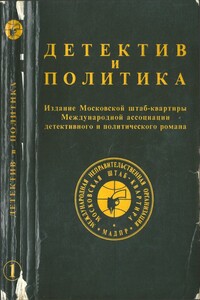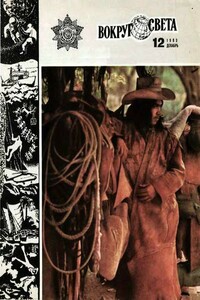Murder at Cape Three Points | страница 105
“We’re coming to the chief’s house now,” Cardiman said.
It was a square brick home whose faded blue paint appeared to have run out before the work was finished. One side of the corrugated metal roof was sagging. The front door was ajar. Cardiman knocked. A skinny man in his early fifties came out.
“Good morning, Yao,” Cardiman said.
“Good morning, sir.”
“This is Inspector Dawson and Sergeant Chikata from Accra. They have come to pay respects to Nana Ackah-Yensu. Is he in?”
“Please, he has gone out.”
“Any idea when he’ll return?”
“Please, I think he will come back soon. You can have a seat.”
Yao gestured to two plastic chairs in the corner of the porch. Dawson and Cardiman took the seats, Chikata remained standing, and Yao hovered indecisively.
“Please, I will go and call him to come,” he said, as if it had just occurred to him.
“Thank you, Yao.”
He set off.
“He’s a relative of Ackah-Yensu’s,” Cardiman explained. “He’s a really sweet man, just a little slow mentally, that’s all.”
They waited almost forty-five minutes before the chief arrived. He was a scrawny man in his early sixties, dressed traditionally with yards of richly patterned cloth wrapped around his body and thrown over one shoulder, and he wore it well.
The three men rose to greet him. Dawson presented him with the gin, which Ackah-Yensu graciously accepted.
Yao brought the chief a chair, and he sat down opposite them.
“So, Mr. Dawson and Mr. Chikata, what is your mission here today?”
Speaking in Fante, Dawson told the Nana that apart from his hearing about the esteemed Akwidaa village and wishing to pay his respects to the Nana, he was on business, investigating the death of Charles Smith-Aidoo and his wife.
Nana Ackah-Yensu nodded and smiled and then paused for a long time. “Yes,” he said finally, rubbing his palm slowly up and down his thigh. “I knew Mr. Smith-Aidoo well, and I was very sorry to hear of his death.”
“Nana, I understand he visited you on a few occasions?” Dawson asked.
“Yes.” He didn’t volunteer anything further.
“Please, Nana,” Dawson pressed, laying on a thick coat of deference, “can you tell me the nature of his visits?”
“Hmm,” the chief said, as though considering a choice of ingredients. “Well, the first time he came here, he told me that his company, Malgam, wanted to help some of the villages on the coast of the Western Region, and he asked me what the needs of Akwidaa were, and I told him, you know, just like so many villages in Ghana, we need electricity, and we need running water. It’s simple. No mystery about it. He said he would talk to his people and return.”



